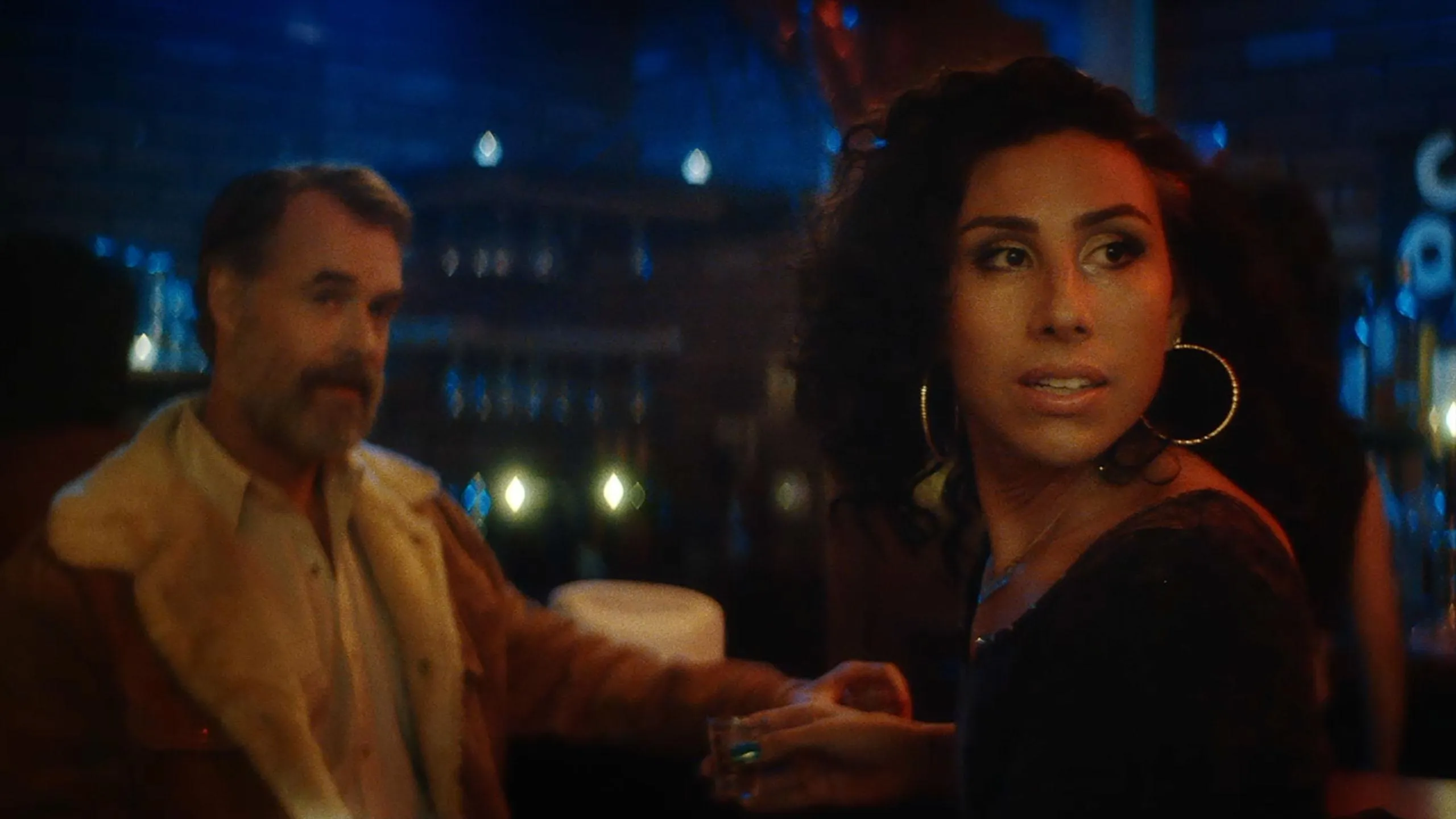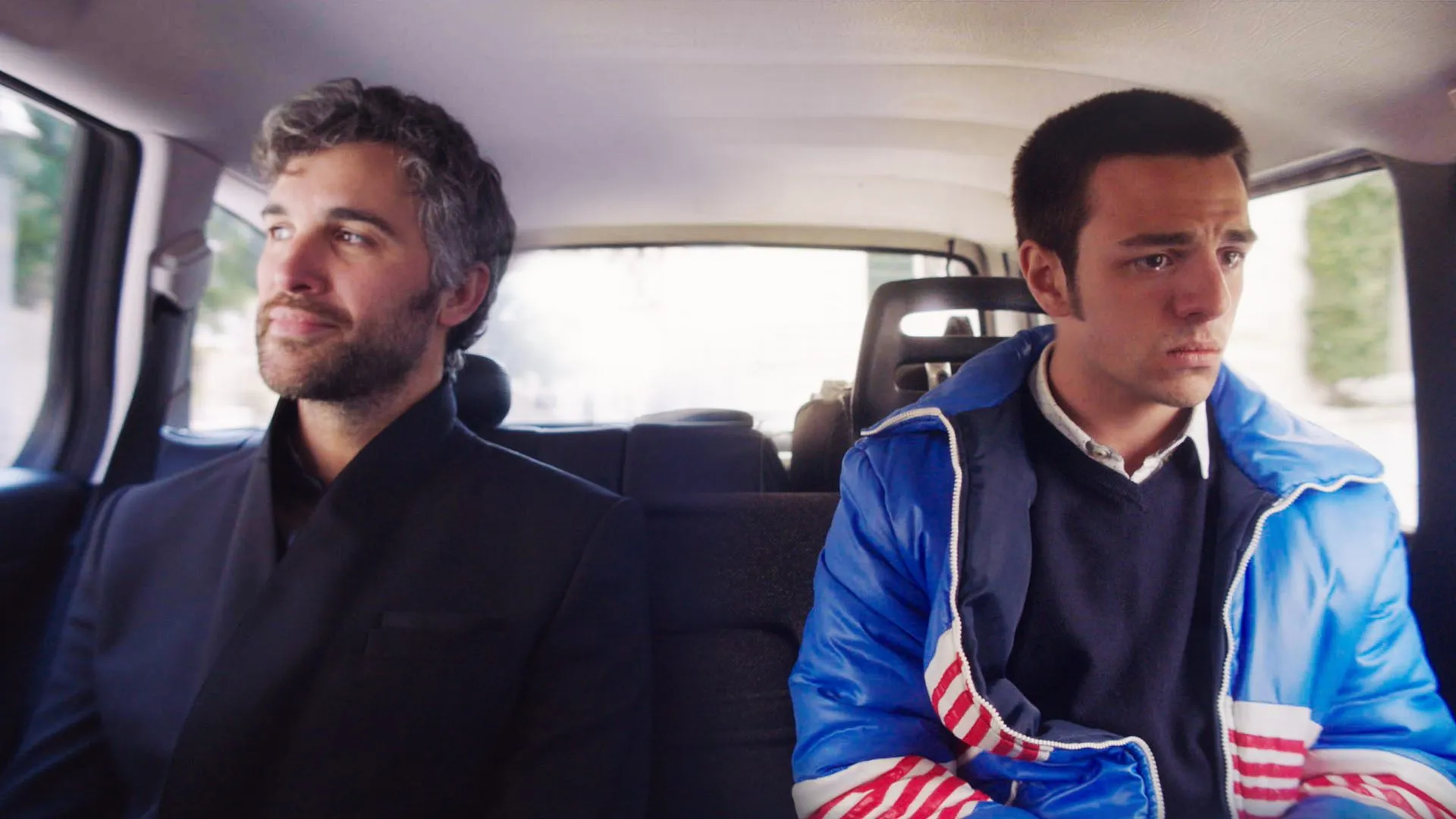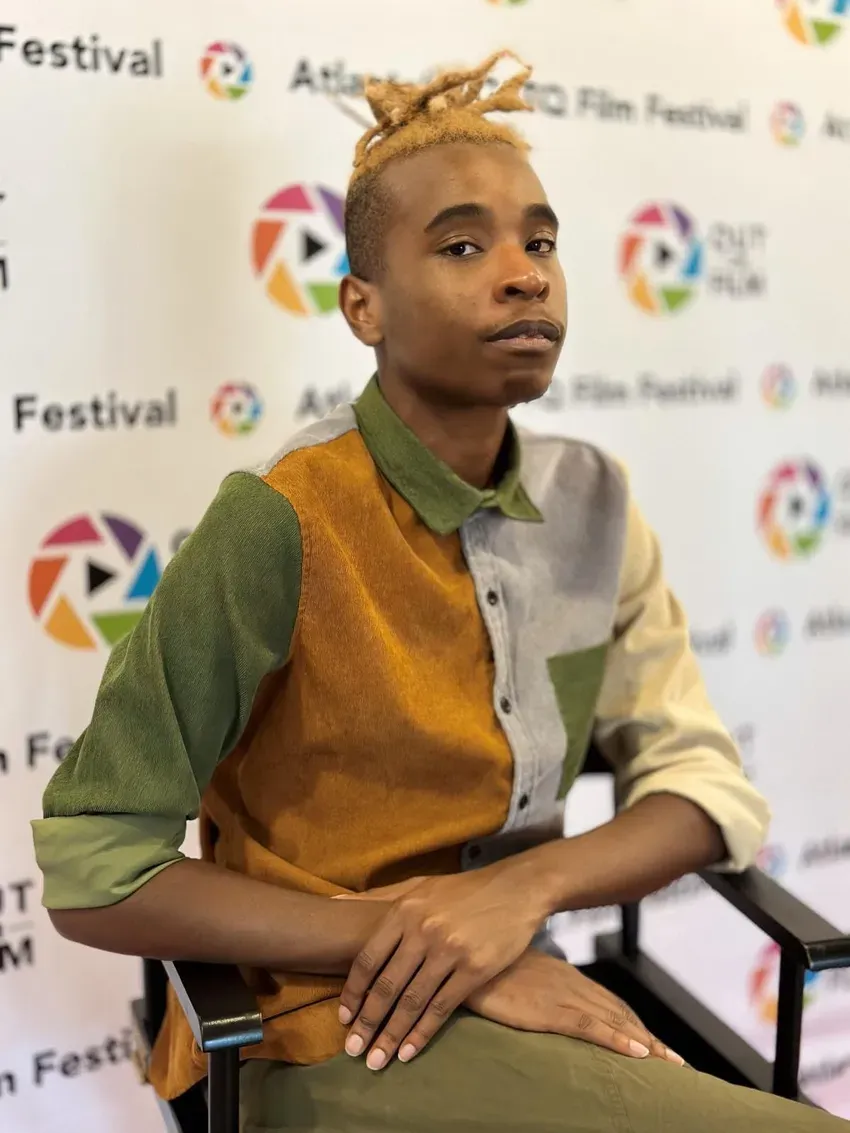The 29th annual Seattle Queer Film Festival (SQFF), presented by Three Dollar Bill Cinema, is ready to make a "Q-thartic!" imprint on the city's moviegoing landscape. With an in-person component of four days – kicking off on Thursday, October 10 with a gala screening of director Esteban Arango and writer-star River Gallo's award-winning drama Ponyboi at the SIFF Cinema Egyptian – and a virtual-only slate that will be available to stream for an additional seven, this year's event is jam-packed with LGBTQ+-focused stories from all around the globe.
I sat down with new SQFF festival director Trent Farrington to discuss this year's exciting lineup of features, documentaries, and shorts. Here are the edited transcripts of what they had to say:
Sara Michelle Fetters: How does it feel to be gearing up for another Seattle Queer Film Festival, especially considering this is your first go-around as director?
Trent Farrington: This is a dream come true. It's inspiring, it is exciting, it's really thrilling, it's challenging. More importantly, I think it's super fulfilling. It's an honor to be here catering to the Seattle community. It's such an important time in the world around us, obviously, to be sharing these stories, showcasing these filmmakers, and championing these narratives.
SMF: What's it like to put together an LGBTQ+ film festival in the middle of a presidential election year, in the middle of a climate where the community's issues are on the forefront of every discussion, especially those related to the Trans community? Of all years, planning and programming for 2024 had to have come with unique hardships and maybe even more unique pressures.
TF: I think you hit it on the spot. This was the year, right? There's so much on the line as we speak about what our future holds. When we talk about the kind of the stories and the narratives and the conversations in the media that reflect our political climate [and] policies that affect us all – especially our Trans community, especially our Black and Latinx communities, our immigrant com-munities – there's a lot on the line. I really wanted to make sure that these communities were heard authentically. I wanted to make sure that these [fiction and nonfiction] narratives and these stories... are real, are connectable, and are approachable.
With everything changing every minute in this election year, I definitely made sure that I double-checked, triple-checked my math and triple-checked the conversations we were having [while] building our program and making sure that cohesively we were putting together something memorable, something important that the entire community could champion and rally behind.

SMF: Maybe this is just coincidence, maybe this is just a sign of the times, but your opening night film Ponyboi seems to hit all of those targets all at once. You've got an Intersex main character. You've got a movie about a sex worker. You've got a movie dealing with immigration issues, drug issues, and police accountability in this current climate. How did that work out?
TF: Ponyboi, our opening night film, is just a jam-packed collaboration. What's very interesting about this film is that River Gallow, the writer and star, actually won the Best Short Film prize here in Seattle in 2019. So it's come full circle.
This project is something that gives me goosebumps, a film that we've never seen before. It's not all the time that Intersex people... get films about themselves and have themselves accurately represented, especially on a topic of drugs, crime, police, brutality, murder. etc.
But it also really represents our festival's 2024 theme, "Q-thartic": that feeling, that emotional release, of getting to...express yourselves wholeheartedly and authentically. I think Ponyboi champions Queer cinema and the importance of us being able to tell our own stories authentically.
And, again, just from the filmmaking standpoint, from a proof of concept to a full-length feature, I think River Gallow and the entire team have something beautiful on their hands. I'm excited to start our program off with it.
SMF: For you personally, I do have to wonder, how cool is to kick off your first SQFF as festival director with a feature-length adaptation of a short film that took home the top prize just five short years ago?
TF: It's an honor. I don't think most people understand the magnitude and the importance that this film has for us and for our community. I think, as you put it, this is years in the making. And to be able to give back to Seattle specifically? How the city championed the short a few years ago and made this filmmaker see the visibility in themselves to go out and make something else? There's something powerful about that.
As a festival director and someone who's big on programming – watching tons of Queer films all year, and looking for the best and the most challenging films to give to people – Ponyboi was a gem. The way that this all gets to come together full circle? It is kind of magical. More than that, it's Q-thartic!

SMF: I will say, the 2023 festival set a high bar. The opening night film, All of Us Strangers, ended up being one of the most critically lauded and audience-acclaimed films of last year. The People's Joker is one of the most talked-about films of the last two years, and is probably going to end up on a ton of top 10 lists in 2024. Looking at this year's schedule, what stands out for you as the titles that people are going to be talking about, not just throughout this festival but maybe for years to come?
TF: Thank you for that question. I feel like Ponyboi, obviously, is going to be a big one. I think Duino [a coming-of-age story] speaks to a lot of folks. We [also] have Asog, which is a great, just hilarious feature following a Nonbinary person going for their dreams and passions while also unpacking some cultural nuances that are unique to them. We've got The Astronaut Lovers, which is a spacy, intimate, cheeky, heartfelt, feel-good film that I just love.
We've got Sally!, about Sally Gearhart, which is such a powerful documentary about Queer legends who [continually] kind of get shushed in our history. I think women in the movement have gotten sidelined when talking about the AIDS and HIV epidemic. It's so important to remember who was there to support us, and who was there to radicalize us, during that pivotal time period. I think this film is very empowering and long overdue.
I think No One Asked You, another film focusing on abortion access and women's rights to healthcare, is another great one that asks some tough and important questions. But it is also something very comedic and lighthearted. Most of all, it's real.
We've got an abundance of shorts programs. I think our BIPOC "Busy Being Black, Beautiful and Bold" [program] is going to be one of the biggest gifts I can give to the Seattle community. Being African-American myself, being Caribbean, there's so much heart and personalization in this program that I just cannot express how joyous it is.
SMF: One of the things that's always been a hallmark of SQFF is that all genres get represented. This year, you've somehow managed to score an IFC Films and Shudder co-production, Haze. Tell us more about that one.
TF: Yes, Haze is going to be an amazing screening. IFC and Shudder... are allowing us to do a screening of the film. Matthew Fifer – I don't know if you remember – had the feature film Cicada, which was so powerful, go into release back in 2020. It was unfortunately one of those films that was released during COVID, so we didn't get to watch it in the theaters and get to invite the filmmaker [to the festival] to have a conversation, which was tough, because it was such a deep film to unpack. For them to be able to come back and return to us as an [alum] for another release, that's incredible. I'm so happy we get to show this one in a theatrical setting.
As for Haze, it's just chilling. It's horrifying. It's gripping. Not to give out any many spoilers, but you get every ounce of horror and terror with that feature, for sure. Audiences will be screaming.
SMF: Other than obviously the COVID years, when things did have to go virtual for good reason, traditionally SQFF has been about 10 to 11 days. This year, the in-person program is four days, October 10 through 13, whereas the virtual program runs October 14 through 20. Why the constriction for the in-person part of the program?
TF: I think it is a continuous understanding of our industry, the importance of change, and understanding how change can be good. Ten days to four days is a big shift, obviously, but it's made for good reason. We're allowing more days for folks to watch, stream, tap in, engage in that virtual experience.
If we look around and we look into this film festival space, there's a lot of changes happening. Sundance is currently looking for the best place...to relocate and looking at several options around the country. Other festivals are dealing with similar issues [as] SQFF. This is an industry-wide conversation about independent space and independent cinema. It's not just happening here in Seattle.
SMF: I think this is part of the same conversation but, especially after the COVID shutdowns, there is a growing perception – and it's an unfortunate one – that festivals like SQFF don't mean as much as they used to, that they may be unnecessary. How do we counter that? How do we remind people that they remain vital and are deserving of community and audience support?
TF: It's an important question. I think we have to remember the importance of why these festivals started in the first place. If Queer representation in film and media was on the forefront of everyone's agenda, I think we would've never had a need to have a Queer film festival. But there was a call and a need for Queer festivals run by Queer people presenting Queer content, festivals that catered to the Queer community, that presented stories that were missing from the regular, regional festival or the typical city festival.
There's that idea that we had to make this space specifically for us. ...While I know media is changing and it might seem trendy to have Queer content, you have to remember that we didn't always have that. We had to come together. We had to make our own space. And, you have to realize, many of the stories being told now in these mainstream projects, they're not being told by Queer filmmakers or being shown through a Queer perspective.
In that sense, yeah, we still need festivals like SQFF. They are so important. We need to come together and make these festivals Queer, make these festivals focus on the Black community, make these festivals Asian and Asian-American focused. These festivals need their own spaces, because cinema, traditionally speaking, still caters to the straight, white viewer. I think that's the importance of SQFF, TRANS|lations, and every other community-focused Seattle festival.
Personally, I feel like there's nothing like being in a room full of Queer people celebrating cinema together. It's wonderful.
SMF: Or as you've said multiple times during this interview, it's Q-thartic!
TF: Q-thartic! It's just so cleansing. It is a reminder of a feeling. It's something that I want to hug, something I want our audience to hug. It's something that I want you all to feel. To feel at home and needed and supported and loved, because this is the time when we need those feelings more than anything. October is going to be very critical, I think, for us all over the US, but especially for our Queer community and especially our Trans community. Because of this, I think it is so vital for these folks to have a place to feel seen and... authentically represented.
We always know the difference when things are authentic and Q-thartic compared to when things are just more commercial and pandering. We're not going to do that. We're going to be Q-thartic!
SMF: With all that being the case, what do you hope audiences take away from this year's festival?
TF: I think that I want folks to be able to look into this program and see unique, different conversations, different people, and different genres. Seattle is incredibly diverse. ...I want folks to be able to tap into that diversity.
I'm so, so in awe of our filmmaking community here who make so many of these films, who put these narratives out there and who are really trying to say something. I think all of our packages – shorts, features, documentaries – have a wide range of views, a wide range of conversations, feelings, and emotions. There is a new wave to come from this program that maybe audiences haven't seen before. I'm excited for them to discover all that we have to offer.
The 29th annual Seattle Queer Film Festival kicks off Oct. 10 and runs in-person through Oct. 13. The virtual festival begins on Oct. 14 and runs through Oct. 20. Venues for this year's festival include the SIFF Cinema Egyptian and AMC Pacific Place 11. For passes, individual tickets, and a full calendar of events, please go to https://sqff2024.eventive.org/schedule
Support the Seattle Gay News: Celebrate 50 Years with Us!
As the third-oldest LGBTQIA+ newspaper in the United States, the Seattle Gay News (SGN) has been a vital independent source of news and entertainment for Seattle and the Pacific Northwest since 1974.
As we celebrate our 50th anniversary, we need your support to continue our mission.
Your contribution will ensure that SGN remains a beacon of truth and a virtual gathering place for community dialogue.
Help us keep printing and providing a platform for LGBTQIA+ voices.
How you can donate!
Using this Link
Text "SGN" to 53-555
Or Scan the QR code below!



